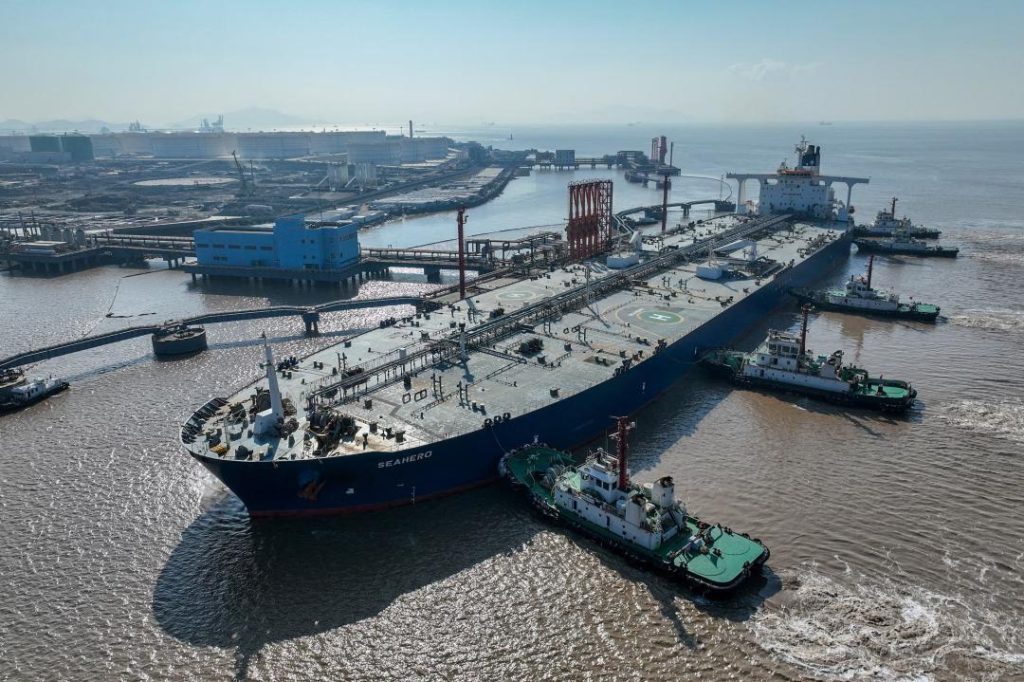
India Sends Diesel to China for the First Time Since 2021 Amid US Tariffs & EU Sanctions: Report
In a rare move, India has shipped diesel to China for the first time since 2021, amidst ongoing tensions with the United States and the European Union. According to a recent report by Bloomberg, a cargo of about five lakh barrels of diesel from Russia-linked Indian refiner Nayara Energy is headed to China’s Zhoushan port. This development comes as a surprise, given the current trade dynamics and sanctions imposed on Nayara Energy.
The diesel cargo was initially destined for Malaysia but made a sudden U-turn towards China, indicating a shift in India’s energy trade priorities. This move is seen as a significant departure from India’s usual stance of maintaining a distance from China in the wake of the ongoing border tensions and trade disputes.
The shipment is significant not only because it marks a rare instance of India exporting diesel to China but also because it comes at a time when the United States has imposed 50% tariffs on Indian exports. The US had previously imposed tariffs on Indian steel and aluminum products, citing national security concerns. This move was seen as a retaliatory measure against India’s decision to impose tariffs on certain American goods.
Moreover, the European Union had announced sanctions on Nayara Energy, which controls India’s second-largest refinery, for its alleged involvement in the construction of a Russian oil pipeline. The sanctions were imposed in response to Russia’s annexation of Crimea in 2014.
Despite these challenges, Nayara Energy has managed to find an alternative market for its diesel exports. The company’s decision to ship diesel to China is seen as a strategic move to diversify its customer base and reduce its dependence on traditional markets.
The development is also significant in the context of India’s energy trade dynamics. India is the world’s third-largest oil consumer, and its energy demand is growing rapidly. The country relies heavily on imports to meet its oil requirements, and the majority of its oil imports come from the Middle East.
China, on the other hand, is the world’s largest oil consumer, and its demand for oil is increasing steadily. The country’s energy needs are driven by its rapid economic growth and urbanization. China’s oil imports have been increasing steadily, and it is now the world’s second-largest oil importer.
The shipment of diesel to China is seen as a significant development in the context of India’s energy trade with China. India and China have traditionally had a complex relationship, with trade tensions and border disputes being a regular feature of their bilateral relations. However, the two countries have also been working to strengthen their energy ties in recent years.
In 2019, India and China signed an agreement to establish a strategic oil reserve in China, which is expected to reduce India’s dependence on the Middle East for oil imports. The agreement also provides for the exchange of oil between the two countries, which could help to reduce India’s trade deficit with China.
The shipment of diesel to China is also seen as a sign of India’s growing economic engagement with the Asia-Pacific region. India has been actively seeking to strengthen its economic ties with the region, particularly with China, to reduce its dependence on traditional markets and to diversify its trade.
In conclusion, the shipment of diesel to China by Nayara Energy is a significant development in the context of India’s energy trade dynamics. The move comes at a time when India is facing challenges from the United States and the European Union, and it is seen as a strategic move to diversify its customer base and reduce its dependence on traditional markets.
As India continues to grapple with the challenges of its growing energy demand, it is likely to seek new markets and partnerships to meet its energy needs. The shipment of diesel to China is a significant step in this direction, and it could pave the way for greater energy cooperation between the two countries.






